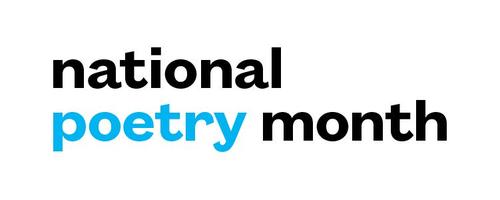We
still have a few days left in National
Poetry Month (celebrated every April since 1966!), so I thought
I’d share seven of my favorite poems.
I
was introduced to poetry at a very young age. My dad, who was a
musician (among his many other talents) composed poems for my
siblings and me, then set his cute doggerel to music. Both my parents
read to us—poetry as well as prose—before I learned to read
myself. I guess it’s not surprising that I started writing my own
poems at the age of six or seven.
Anyway,
here are some of the poems that are special for me. Some I
encountered in the distant past; one, only a few days ago.
‘Twas
brillig, and the slithy toves
Did
gyre and gimble in the wabe:
All
mimsy were the borogoves,
And
the mome raths outgrabe.
The
Alice books were among the first novels I read. I loved Lewis
Carroll’s verse as much as his fantastic stories. This classic
poem illustrates how the patterns of English grammar can convey
meaning even when the words themselves are nonsense. We can tell that
“brillig” is a time of day (or maybe a description of the
weather); that “toves”, “borogoves” and “raths” are
creatures of some sort; that “gyre”, “gimble’, and “outgrabe”
are actions; that “mimsy” and “mome” describe the creatures.
This
poem comes from Through
the Looking Glass
(or more correctly, “Through the Looking Glass, and What Alice
Found There”.) As the mirror above her fireplace dissolves into
mist, Alice steps through to find herself in a similar, but
distinctly twisted reality. She picks up one of the books from the
shelves, to find it’s written backwards, but is able to read the
poem by holding it up to the now solid mirror in the looking glass
room.
Like
me, she manages to get some sense from it, despite the made-up
vocabulary!
The
wind was a torrent of darkness among the gusty trees.
The
moon was a ghostly galleon tossed upon cloudy seas...
I
don’t remember where I first encountered this tale, but I’m
pretty sure I’d read it before I reached puberty. Nevertheless, the
tragic romance embodied in the poem deeply touched me. Only now do I
realize it’s actually a paranormal romance!
This
poem clearly shows the relationship between poetry and music. Its
strong rhythm and repeating refrain are like a song.
I
recently returned to this poem, finding I liked it as much as ever.
Actually, I have a plan to write a story based loosely on “The
Highwayman”—but with a much happier ending!
Life
has loveliness to sell,
All
beautiful and splendid things,
Blue
waves whitened on a cliff,
Soaring
fire that sways and sings,
And
children's faces looking up
Holding
wonder like a cup.
In
seventh grade, we had an activity in English class called
“recitation”. Basically, the goal was to give us practice in
public speaking. For some assignments, we had to teach the class how
to do something. For others, we had to make a logical argument. The
assignments I recall best, though, are those where we had to memorize
a piece of verse and declaim it to the class.
“Barter”
was one of the poems I chose to recite. I can still do so. The
message in this brief, poignant poem resonates with me, decades
later.
Let
us go then, you and I,
When
the evening is spread out against the sky
Like
a patient etherized upon a table;
Let
us go, through certain half-deserted streets,
The
muttering retreats
Of
restless nights in one-night cheap hotels
And
sawdust restaurants with oyster-shells
I
studied this poem in high school English class. It was possibly one
of the first pieces of verse that I approached from an analytical as well as an
emotional perspective. The sensual, nostalgic, gently erotic imagery
in this poem have stuck with me all my life, though only now as I
grow old, like the poem’s narrator, can I fully appreciate the
world-weary beauty of it.
Who
made the world?
Who made the swan, and the black bear?
Who made
the grasshopper?
This grasshopper, I mean-
the one who has
flung herself out of the grass,
the one who is eating sugar out of
my hand
I’m
embarrassed to say that I’d never heard of Mary Oliver, until I
noticed a close friend using the stunning last lines of “The Summer
Day” as her email signature. This poem is a gem, capturing the
breathless beauty of a single moment then showing the deep truth it
contains.
for
some
it
is stone
bare
smooth
as
a buttock
rounding
into
the crevasse
of
the world
I
first read this poem only a few days ago, posted by one of my high
school friends (a poet herself) on Facebook.
How
few words are necessary, to make a miracle.
A
poem should be palpable and mute
As
a globed fruit,
Reading
Clifton’s poem—which I believe is partly about what it means to
be a poet— inspired me to look up what is perhaps my favorite poem
about poetry.
Alas,
I aspire to these heights but don’t come anywhere close. Still, if
you’d like to read some of my poems, most of which are love poems,
you can find them at
my website on the free reading page.
By the way, be sure to check out the other Saturday Seven posts, all linked to the Long and Short Reviews post today. Just to sweeten the pot, LASR is giving away the seven books they're listing!


